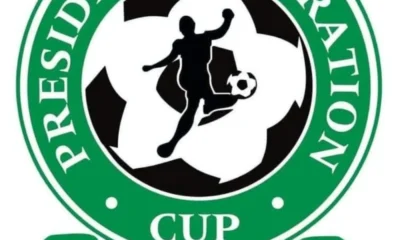ECONOMY
How to Make Millions Recycling AC Water

AC water is the clear liquid that drains from an air conditioner while it cools. This isn’t rainwater or tap water—it’s condensate: water extracted from the air as the AC removes humidity.
In the past, this water was considered waste. Today, smart entrepreneurs are collecting it, packaging it, and selling it for profit, especially for use as:
- Battery water (for car and inverter batteries)
- Water for steam irons
- Cleaning water for car washes, laundry, and households
How the AC Water Process Works (Step by Step)
1. Collection
Every AC has a small pipe or hose where water drips out during use.
- Place a clean bucket, jerrycan, or drum under the hose.
- For larger buildings like offices or hotels, connect multiple AC pipes to a central tank using PVC pipes.
Each AC unit can produce between 5 and 30 liters daily, depending on size and usage time.
2. Filtration and Treatment
Although AC water looks clean, it can contain dust, bacteria, mold, or particles from the AC coil. To make it suitable for use:
- Use a mesh or cloth filter to remove debris.
- Optionally add a few drops of bleach for disinfection.
- Use UV sterilizers or carbon filters if available.
- If selling for battery use, ensure no oil or rust contamination.
3. Packaging
Pour the filtered water into labeled jerrycans, bottles, or gallons.
- Seal containers properly to prevent contamination.
- If targeting mechanics or battery shops, use 5L, 10L, or 25L containers.
4. Marketing and Selling
You can sell directly to:
- Battery and inverter shops
- Auto mechanics
- Laundry services and car washes
- Steam iron users such as tailors, salons, and dry cleaners
- Households for cleaning or gardening
Promote your products through WhatsApp groups, flyers near mechanic workshops, word of mouth, and online platforms like Jiji and Facebook Marketplace.
How Much Can You Sell It For?
| Container Size | Typical Price Range |
|---|---|
| 5 Litres | ₦200 – ₦300 |
| 10 Litres | ₦400 – ₦600 |
| 25 Litres | ₦800 – ₦1,200 |
Prices vary by location, packaging, and cleanliness.
How Much Can You Make Monthly?
Here’s an example:
- You have 3 split ACs running 10 hours daily.
- Each produces about 15 liters per day.
- Total: 45 liters per day.
- Over 30 days: 1,350 liters.
If sold in 25-liter containers for ₦1,000 each: - 1,350 ÷ 25 = 54 containers
- 54 containers x ₦1,000 = ₦54,000 per month
In larger setups, such as a hotel with 20+ ACs producing 500 liters daily, you could collect 15,000 liters monthly, translating to ₦500,000–₦1,000,000 in revenue.
How to Maximize Profit
- Use More ACs
Partner with hotels, churches, offices, and event centers. Offer to collect the water for free or share profits if necessary. - Add Basic Purification
Better filtration and cleaner water expand your market and allow you to charge higher prices. - Brand and Package
Create a professional label, for example:
EcoSoft AC Water – Pure Water for Batteries and Cleaning
Branded, sealed containers attract more customers. - Find Bulk Buyers
Focus on mechanic clusters, car wash centers, battery dealers, generator repairers, and tailors who use steam irons. Offer discounts for consistent orders. - Provide Delivery
Offering same-day delivery with bikes or tricycles helps build loyal customers.
Important Notes and Warnings
- Not for drinking: AC water isn’t safe to drink without serious purification.
- Clean storage: Always clean containers to avoid bacterial growth.
- Requires electricity: You need regular power for ACs to run.
- No NAFDAC registration needed: Unless you plan to sell it as drinking water.
Summary: Is It Worth It?
Yes—if you have access to multiple AC units and basic packaging supplies, this can be a smart, low-cost business with steady demand.
Pros:
- Very low startup costs
- Free raw material
- Growing demand due to battery usage and water scarcity
- Can operate from home or a small office
Cons:
- Limited output if you only have a few ACs
- Not a quick-profit venture
- Requires consistent hygiene and quality
Final Advice
To get started:
- Begin with your own AC units.
- Collect and filter water daily.
- Package neatly and sell locally.
- Scale up by partnering with locations that have many ACs.
Discover more from Asiwaju Media
Subscribe to get the latest posts sent to your email.
-

 NEWS4 days ago
NEWS4 days agoDavid Beckham Hospitalized With Arm Injury As Victoria Shares Update
-

 ENTERTAINMENT3 days ago
ENTERTAINMENT3 days agoFrank Edoho Confirms Split From Second Wife Sandra Onyenuchenuya
-

 NEWS3 days ago
NEWS3 days agoMan Heartbroken As Girlfriend Of 2 Years Denies Him During Interview With YouTuber Asherkine At UNN
-

 CAMPUS REPORTS6 days ago
CAMPUS REPORTS6 days agoAE-FUNAI to Unbundle Mass Comm Programme into Eight New Disciplines – VC
-

 SPORTS5 days ago
SPORTS5 days agoVictor Osimhen Acquires 2025 Rolls-Royce Cullinan Worth Over ₦900 Million
-

 ENTERTAINMENT3 days ago
ENTERTAINMENT3 days agoNollywood Mourns As Actor And Producer Kayode Peters Reportedly Passes Away In Canada
-

 JOBS/SCHOLARSHIPS4 days ago
JOBS/SCHOLARSHIPS4 days agoFG Releases YEIDEP 2025 Payment Schedule, Sparks Hope for Youth in Agribusiness
-

 SPORTS4 days ago
SPORTS4 days agoAbakaliki FC Faces Kwara United Today in Federation Cup Final
-

 INSIDE NYSC4 days ago
INSIDE NYSC4 days agoNYSC DG Calls For Unity and National Development During Lagos Camp Visit
-

 INSIDE NYSC6 days ago
INSIDE NYSC6 days agoNYSC Officer Clarifies Allowance Payments, Warns Corps Members on BVN Errors
-

 ENTERTAINMENT6 days ago
ENTERTAINMENT6 days agoTems Gifts Fan ₦3 Million For Stunning Crochet Portrait
-

 ENTERTAINMENT3 days ago
ENTERTAINMENT3 days agoUNN Student Becky Breaks Silence, Denies Claims Of Boyfriend Denial After Viral Outing With Asherkine
















